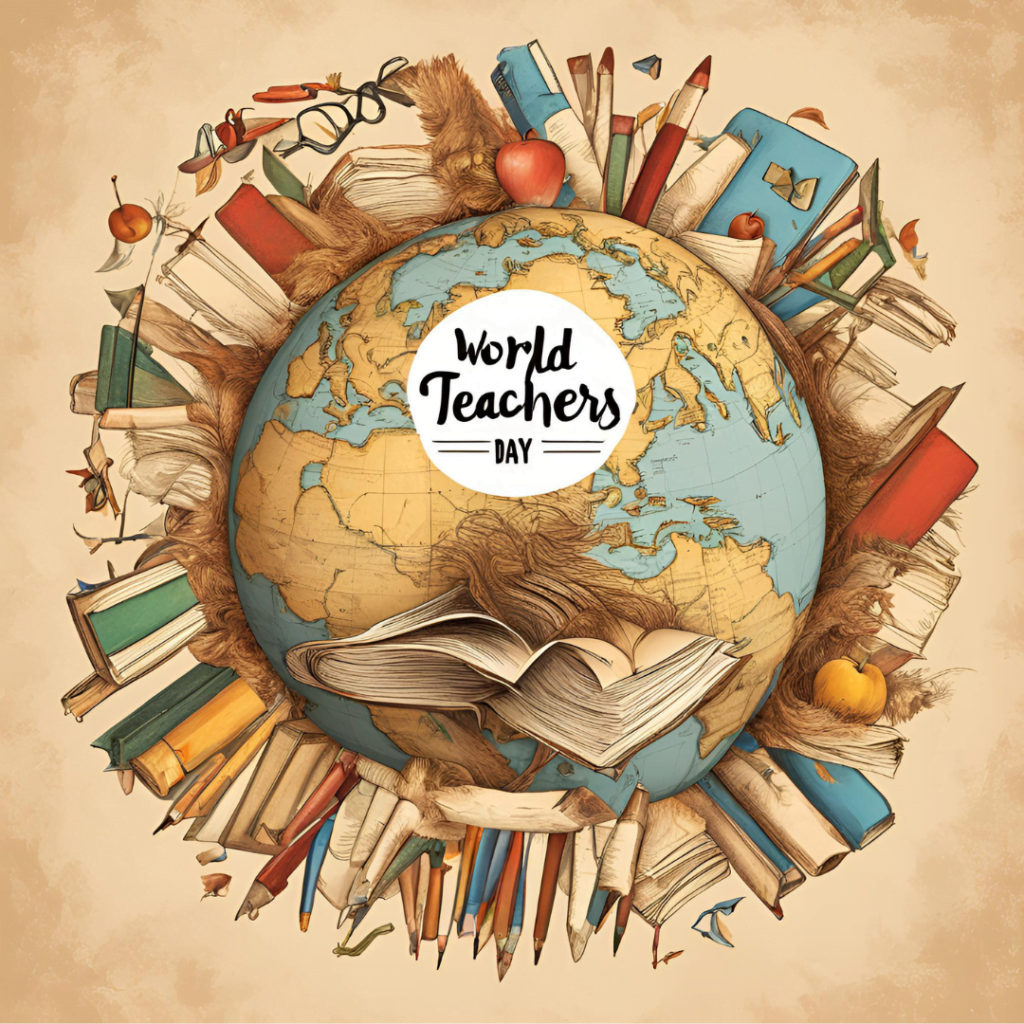Why Teachers Matter In This Artificial Generation ????

Why Teachers Matter: The Indispensable Role of Educators
Imagine a world without teachers. No guiding hands to shape young minds, no mentors to inspire dreams, no champions of knowledge to light the path forward. It’s a bleak picture, isn’t it? 🌑 Yet, in our fast-paced, technology-driven society, we often overlook the profound impact that educators have on our lives and the future of our world.
From the moment we step into our first classroom, teachers become an indispensable part of our journey. They’re not just dispensers of information; they’re architects of potential, sculptors of character, and bridges to a brighter tomorrow. But in an era of standardized tests and budget cuts, have we lost sight of just how crucial these unsung heroes truly are? 🦸♀️🦸♂️
In this blog post, we’ll explore the multifaceted role of teachers in our society. From shaping future generations to creating supportive learning environments, we’ll delve into how educators inspire, motivate, and bridge the gap between academic knowledge and real-world application. Join us as we uncover the lasting impact teachers have, not just within the classroom, but far beyond its walls.

Cultivating a Love for Knowledge
Teachers play a pivotal role in fostering a genuine passion for learning among their students. By employing various strategies and techniques, educators can ignite curiosity and create an environment where knowledge is not just acquired, but cherished.
Strategies for Cultivating Knowledge Love
- Engaging Teaching Methods
- Personalized Learning Approaches
- Encouraging Critical Thinking
- Promoting Lifelong Learning
One of the most effective ways teachers cultivate a love for knowledge is through the use of engaging teaching methods. These may include:
- Interactive discussions
- Hands-on experiments
- Project-based learning
- Gamification of lessons
By making learning fun and interactive, teachers can spark interest and enthusiasm in even the most challenging subjects.
Impact of Personalized Learning
Personalized learning approaches have shown significant results in fostering a love for knowledge. Consider the following comparison:
| Traditional Approach | Personalized Learning |
| One-size-fits-all curriculum | Tailored to individual needs |
| Fixed pace for all students | Flexible pacing |
| Limited student choice | Increased student autonomy |
| Focus on grades | Focus on mastery and growth |
By adapting to each student’s unique learning style and pace, teachers can help students develop a deeper appreciation for the learning process itself.
Encouraging critical thinking is another crucial aspect of cultivating a love for knowledge. When students are taught to question, analyze, and evaluate information, they become active participants in their own learning journey. This not only enhances their understanding but also instills a sense of ownership and excitement about acquiring new knowledge.
Shaping Future Generations
Teachers play a pivotal role in molding the minds and character of our future generations. Their influence extends far beyond academic instruction, encompassing the development of well-rounded individuals prepared to face the challenges of tomorrow.
A. Imparting essential knowledge and skills
Teachers are the primary conduits for transferring fundamental knowledge and skills to students. They provide the building blocks for academic and professional success:
- Core subjects (mathematics, science, language arts)
- Digital literacy and technological proficiency
- Communication and collaboration skills
- Time management and organization
B. Nurturing personal growth and character development
Beyond academic instruction, educators foster the personal growth and character development of their students:
| Aspect | Teacher’s Role |
| Self-confidence | Encouraging students to believe in themselves |
| Empathy | Teaching the importance of understanding others |
| Resilience | Helping students learn from failures and setbacks |
| Integrity | Modeling and reinforcing ethical behavior |

C. Fostering critical thinking and problem-solving abilities
Teachers equip students with the cognitive tools necessary to navigate complex situations and make informed decisions:
- Encouraging analytical thinking
- Teaching research and information evaluation skills
- Promoting creative problem-solving techniques
- Developing logical reasoning abilities
By shaping future generations in these ways, teachers lay the groundwork for a society of informed, compassionate, and capable individuals. Their influence extends far beyond the classroom, contributing to the development of future leaders, innovators, and responsible citizens.
Creating Supportive Learning Environments
Teachers play a crucial role in creating supportive learning environments that foster student growth and success. By focusing on inclusivity, safety, curiosity, and adaptability, educators can cultivate spaces where every student can thrive.
A. Promoting inclusive classrooms
Inclusive classrooms are essential for ensuring that all students feel valued and supported. Teachers can promote inclusivity by:
- Celebrating diversity and cultural differences
- Using diverse teaching materials and examples
- Encouraging collaboration and peer support
- Addressing unconscious biases
B. Building safe spaces for academic and emotional growth
A safe learning environment is fundamental for students to take risks, express themselves, and develop both academically and emotionally. Teachers can create these safe spaces by:
- Establishing clear expectations and boundaries
- Implementing anti-bullying policies
- Encouraging open communication
- Providing emotional support and resources
C. Encouraging curiosity and lifelong learning
Fostering curiosity is key to developing a love for learning that extends beyond the classroom. Teachers can encourage this by:
- Asking thought-provoking questions
- Providing hands-on learning experiences
- Allowing for student-led inquiries
- Modeling lifelong learning behaviors
This is we want to tell you about teacher day’

